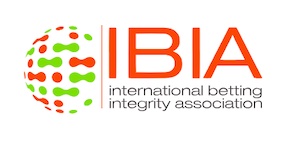A new study prepared by H2 Gambling Capital has found a “strong correlation” between a wide availability of sports betting markets and a high channelisation rate towards the regulated market.

Launched by the International Betting Integrity Association, The Availability of Sports Betting Products: An Economic and Integrity Analysis study also found that the more markets consumers have to bet on in regulated markets, the less risk there is of exposure to sports betting-related fraud on unlicensed markets.
The study found that football and tennis are among the specific betting markets that have a “disproportionate impact” on the market and the onshore channelling rate due to their “size and popularity.”
In-play markets, side-markets such as cards and corners and prop betting also have a “very significant impact on channelling,” the IBIA said.
Khalid Ali, IBIA CEO, said the study “confirms that bet restrictions are a blunt and counterproductive instrument.”
“They don’t prevent betting, they just drive it into the unregulated market where most of the problems with sports integrity arise,” he added.
“The conclusions are clear: if you want to protect consumers and sports from corrupters, while maximising tax revenues, then allowing a wide range of sports betting products is essential.”
The research predicts that the global sports betting industry is set to be worth US$94bn in gross win in 2024, rising to $132bn in 2028, with over 70 per cent ($93bn) of that revenue coming from online betting.
Forty-seven per cent of all online bets will be placed in-play in 2024, up to 51 per cent in 2028, the study adds.
“David Henwood, director at H2, said: “We always fall back on the data. There is much conjecture that one of the main reasons customers use offshore betting sites is because they offer a broader range of product than available onshore.
“The study findings reinforce that point of view.”
Diving deeper into examples of markets which currently have limited onshore betting options, the IBIA and H2 have forecast that Australia would gain an additional $1bn in incremental tax revenues over the next five years if it permitted online in-play betting markets.
Germany and Portugal are predicted to have a combined loss onshore of around $750m in taxable revenues due to restricted access to the main football betting markets between 2024 and 2028.
The IBIA said the study’s findings are “important for policymakers to consider as new jurisdictions – notably in North and South America – consider how best to regulate their online sports betting markets.”
“In Brazil, for example, a regulatory framework with high product availability is expected to have $34bn in onshore sports betting turnover, providing $2.8bn in GGR, by 2028,” it said.

